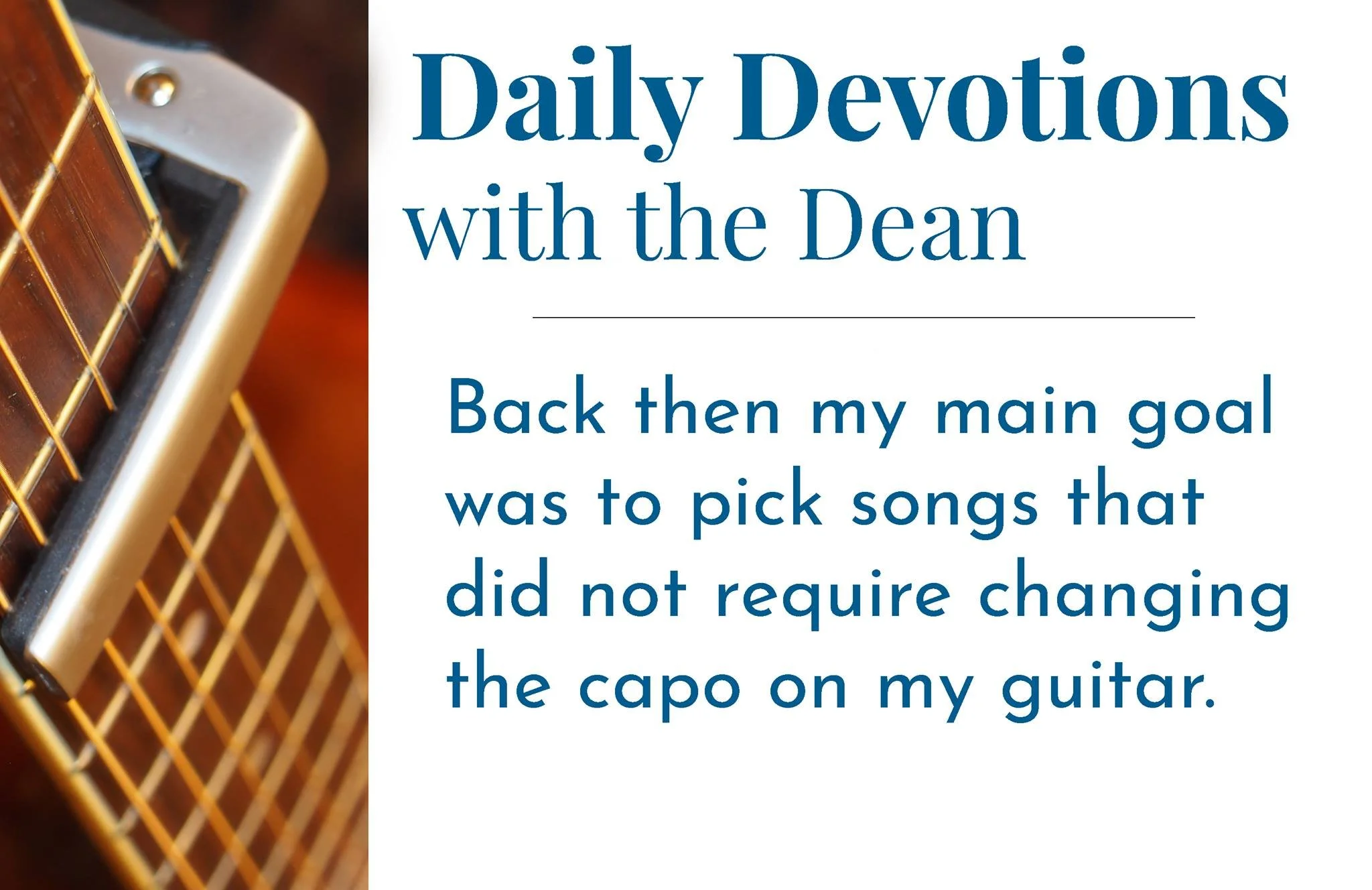Thursday • 7/6/2023
Welcome to Daily Office Devotions. I’m Reggie Kidd. Thanks for joining me.
We’re taking a detour from the Daily Office readings last week and this week. Instead, we’re thinking through various facets of worship and how our Lord provides meaningful communion with him through our formal corporate worship as well as in individual worship in our daily devotions. The thoughts offered here are excerpts (sometimes lightly edited) from articles I wrote for Worship Leader magazine a few years ago.
They come from a season in my life when I was on a journey from more generic free-form worship to worship shaped by the classic liturgy. I hope these observations help you in your own quest to love God and your neighbor.
“Jesus Christ, Our Worship Leader,” Part Four of Five
This week, we explore the way Jesus exquisitely leads worship in our midst: he prays for us, declares the Father’s name to us, sings over us in love, and brings us bread and wine from God’s holy heavenly altar.
Singing in Our Midst
As our worship leader, Jesus prays and he declares. He also sings. “In the midst of the congregation I will sing a hymn to you,” concludes Heb. 2:12b. The same one who declares God’s name in blessing also leads the congregation in song.
The writer is actually quoting Psalm 22:22, one in which David is recounting God’s miraculously delivering him from enemies who nearly killed him. The psalm starts out as a lament of abandonment, one of the darkest in all the Bible: “My God, my God, why have your forsaken me?” At the point of rescue, the psalm pivots and becomes a victory chant, celebrating among Jew and Gentile, poor and rich, already dead and not yet born, the righteous rule of God.
It’s an extraordinary thing that the mightiest warrior of the Bible is also its most celebrated musician. He whose “hands are trained for war and fingers for battle” offers a new song to God: “Upon a harp of ten strings I will sing praises to you” (Ps 144:1,9). In his youth, David soothes Saul’s soul with his melodies. In his maturity, with harp in hand he confesses his sin, protests his innocence, humbles himself under God’s discipline, calls for help, composes “new songs” commemorating God’s fresh acts of deliverance.
David passes on his legacy of song to members of the Levitical priestly line, to the likes of Chenaniah and Asaph (1 Chron. 15:22; 16:5). It is descendants of these Levites who would oversee Israel’s musical worship (see 2 Chron. 23:18; 35:15), even, at times, going before Israel’s army into battle (2 Chron. 20:14-25).
But there is only one priestly order that could establish a permanently “new song,” only one director who could incorporate into a single choir people of every race and nation, tribe and tongue, bandwidth and skill-level, only one singer who could lead that menagerie into the fray against the powers and principalities: he who went all the way into the silence of sin-forsakenness and rose in victory to be God-incarnate singing over his people with love (Zeph. 3:17).
The glory of song in worship is that we get to join our voices to his. His is the voice that counts, not ours.
Be blessed this day,
Reggie Kidd+















